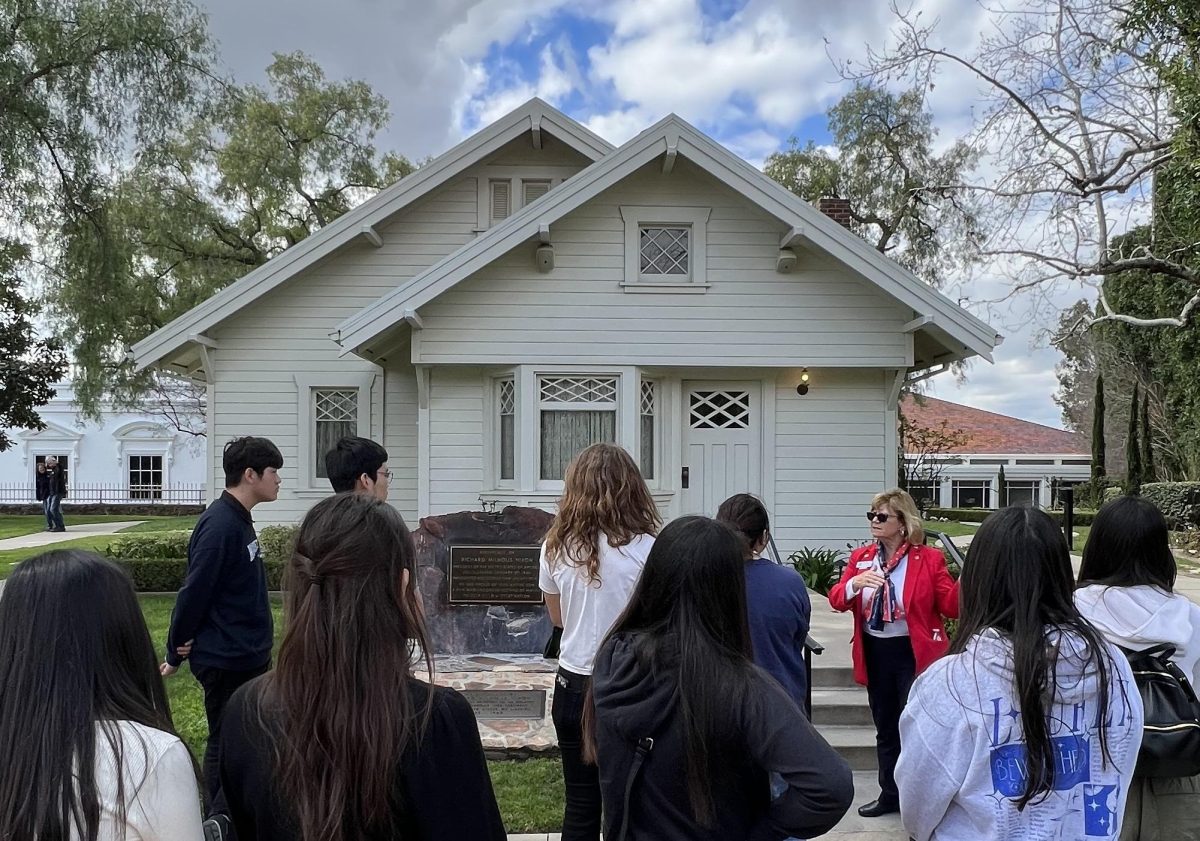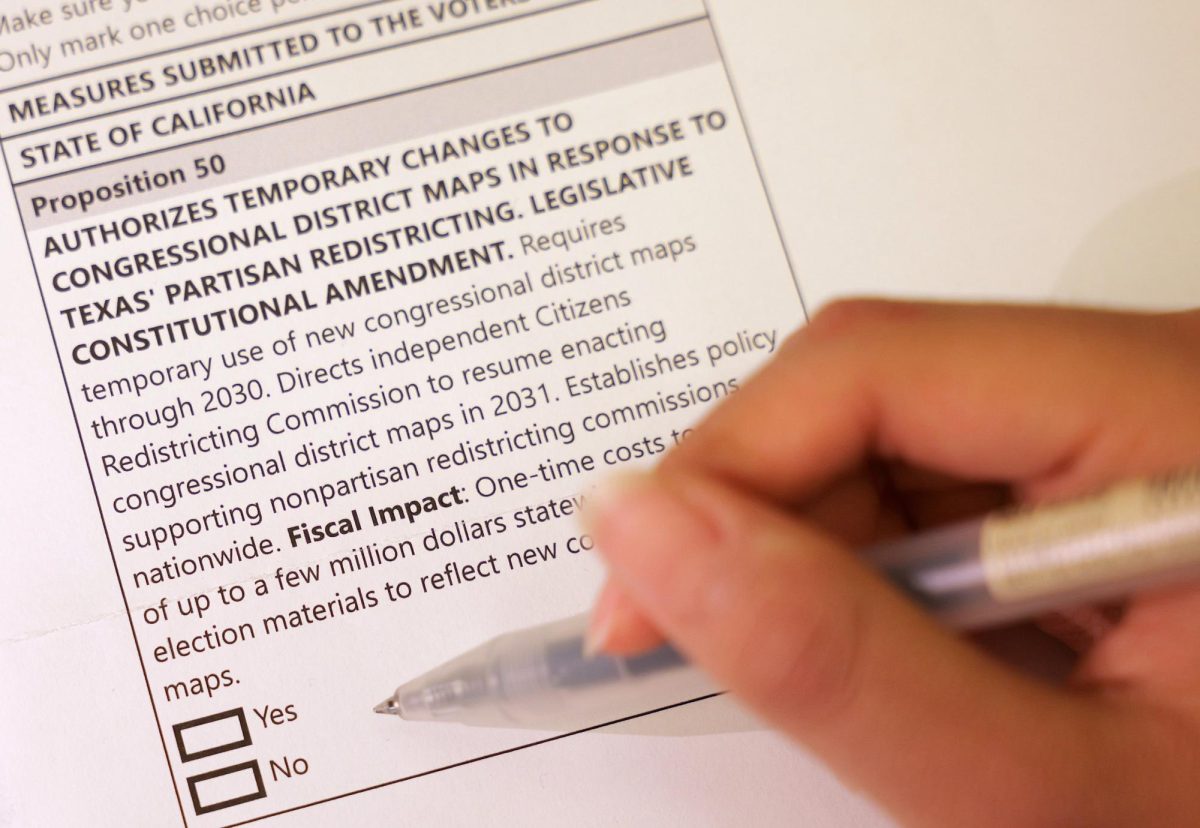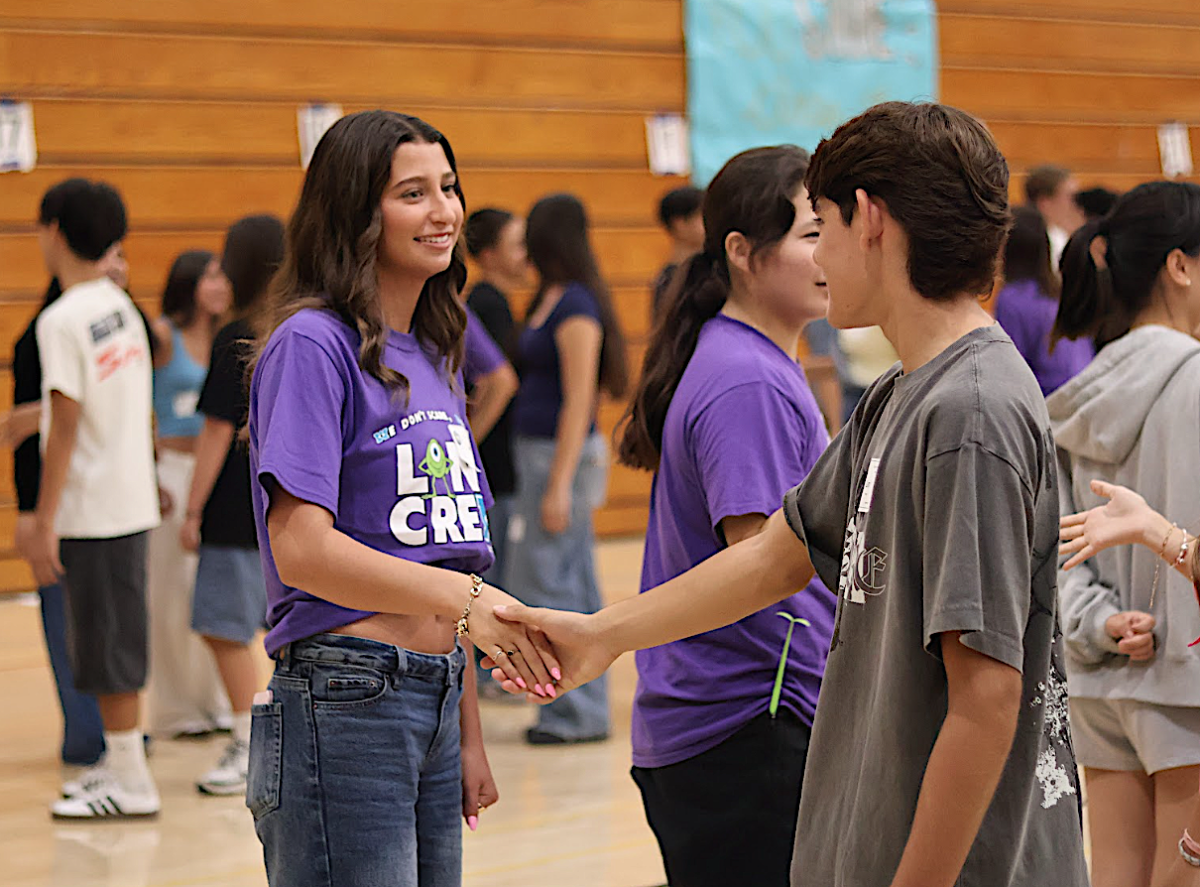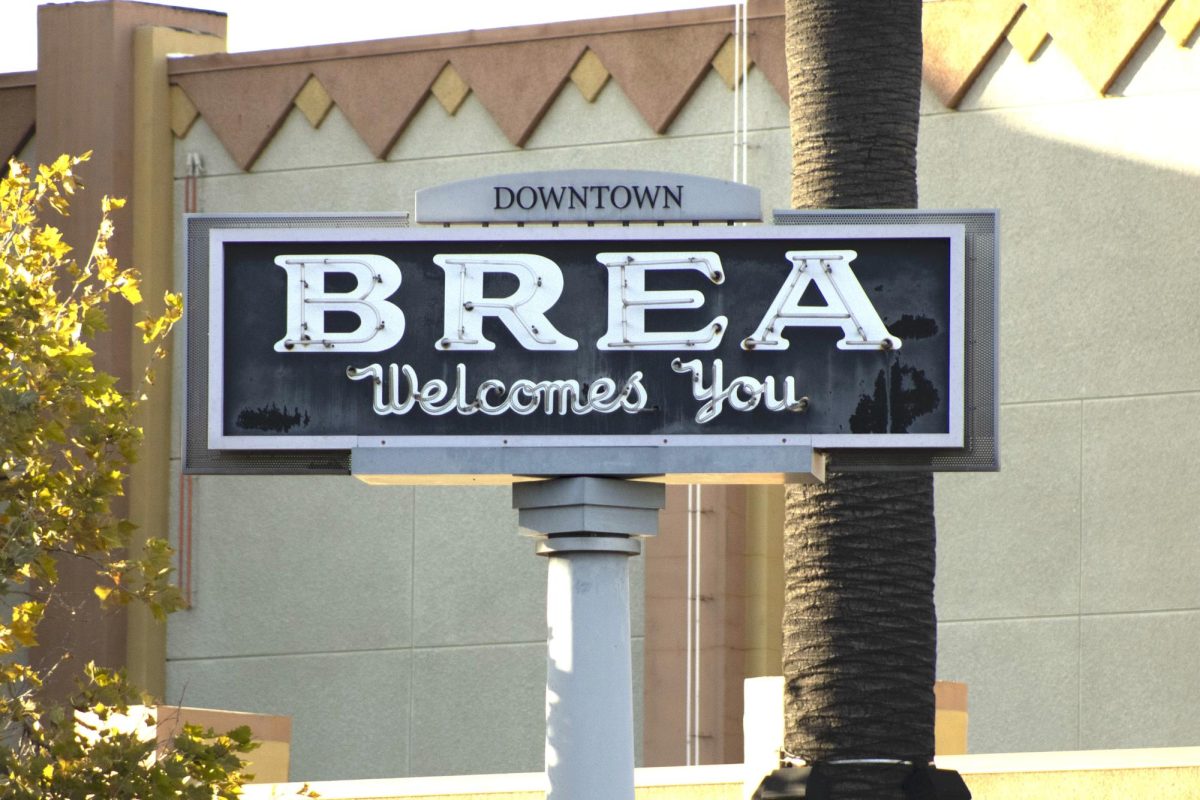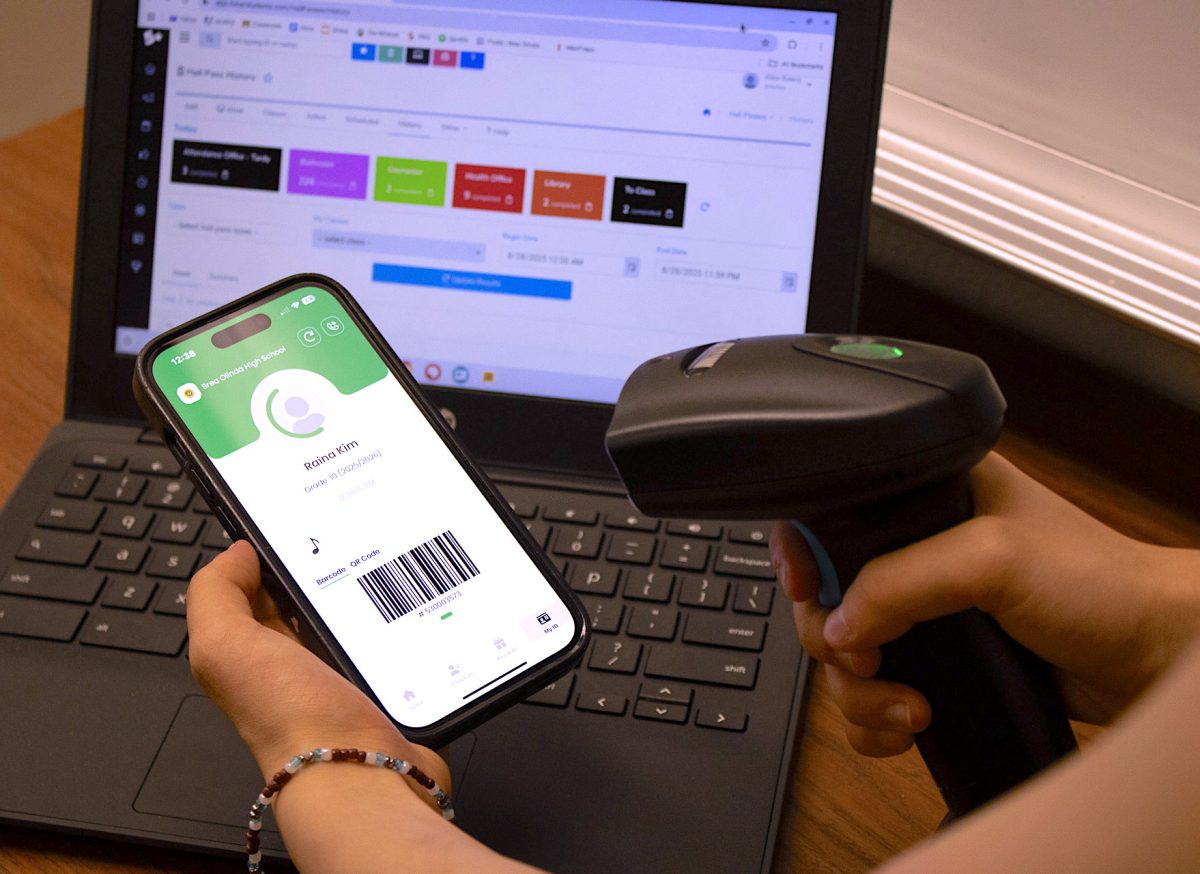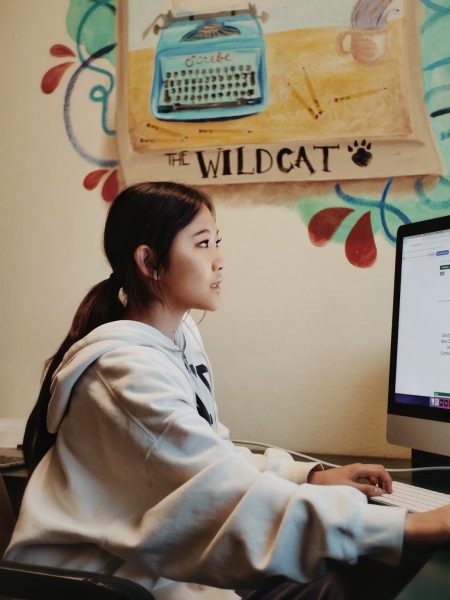13 members of BOHS’s Rho Kappa National Social Studies Honor Society experienced a peek into Orange County’s presidential past when they visited the Richard Nixon Presidential Library and Museum in Yorba Linda for an interactive history lesson on March 1.
“Since Rho Kappa students are experts in historical research,” Brittany Eaton, social studies teacher and Rho Kappa advisor, said, “what better way to [learn] outside of school than in a well-curated museum?”
The museum sits on the late president’s birthplace and farmland just 5.5 miles from the BOHS campus. The site was developed into a museum in 1990 and features multimedia film exhibits and artifacts from the thirty-seventh president’s life for an immersive learning experience.
After serving as a congressman, U.S. senator, and vice president to Dwight D. Eisenhower, Nixon served as president from 1969 to 1974. During his term, Nixon sought to end Cold War hostilities and enacted various environmental and economic policies. Nixon was also implicated in the Watergate scandal. For his role in the cover-up, he resigned in 1974 under threat of impeachment.
“Most people automatically think of Watergate and his downfall, but there is so much more to him. The Nixon Library [provides] a more holistic understanding of who he was and what he did during his time serving our country,” Kate Caprine, history teacher and chaperone, said.
The tour, led by Therese Pontrelli, volunteer docent, began with a 13-minute film that covered the life and legacy of the former president.
The Rho Kappa students then explored the Pat Nixon Rose Garden, designed by the former first lady. The outdoor walls are lined with information about environmental legislation that Nixon passed, such as the Clean Air Act and the creation of the Environmental Protection Agency.
Sophie Ho, junior, noted the garden’s beauty and was moved by “all the flowers planted in [a] place that honors Nixon’s legacy.”
The path behind the garden’s expansive fountain leads to the “Army One” helicopter that Nixon, John F. Kennedy, Lyndon B. Johnson, and Gerald Ford used during their presidencies. The Sea King VH-3A helicopter resides on the grounds of the Nixon library partly due to its significance on his last day in office: While leaving the White House for the last time, Nixon held up his familiar peace signs to the assembled crowd before stepping into Army One on Aug. 8, 1974.
Rho Kappa then entered the former president’s birthplace, a small farmhouse that his father, Francis A. Nixon, built. The home is preserved with its original furnishings to replicate the interior during Nixon’s childhood.
Inside the museum, galleries feature a timeline of events leading up to, and during, Nixon’s presidency, including the war in Vietnam, the civil rights movement, and the Apollo 11 moon landing.
“My favorite exhibit was an American flag created by a POW in Vietnam,” Lena Rotblum, senior, said. “Although this soldier was imprisoned under harsh conditions and faced execution, he made an American flag out of prison uniforms. I think this shows the strength of American ideals under difficult circumstances.”
Students also sat in replicas of the White House’s East Room and Oval Office, which wasdecorated with gold and blue (California’s official state colors), as it was during Nixon’s presidency.
Display cases hold artifacts from Nixon’s tenure, including yellow notepads he used to chronicle his thoughts and draft speeches to the American public, and letters he received from citizens during times of decisive action.
“It is so important for students to immerse themselves in history because it’s one thing to read something out of a textbook versus seeing the topic in context with all the information sitting in one place,” Ellen Kim, senior and co-president of Rho Kappa, said.
During his term, Nixon progressed the country’s standing in international relations; for instance, his handshake with Chinese Premier Zhou Enlai during his visit to the People’s Republic of China on Feb. 21, 1972 led to diplomatic relations between the previously contentious nations.
“It was cool to learn that Nixon set a precedent, as all presidents after [him] would meet the Chinese president, breaking the 25-year isolation between the two countries,” Kim said.
“As a president who is known for his desecration of America’s political values,” Rotblum said, visiting Nixon’s birthplace “presented a more complete view of his accomplishments.”
The mission of the Rho Kappa Honor Society is to recognize academic excellence in students who explore the field of social studies.
“It brought me great joy seeing students enjoying themselves as they learned more about President Nixon,” Eaton said. “It was an awesome opportunity to get out of the classroom and see history come alive.”


